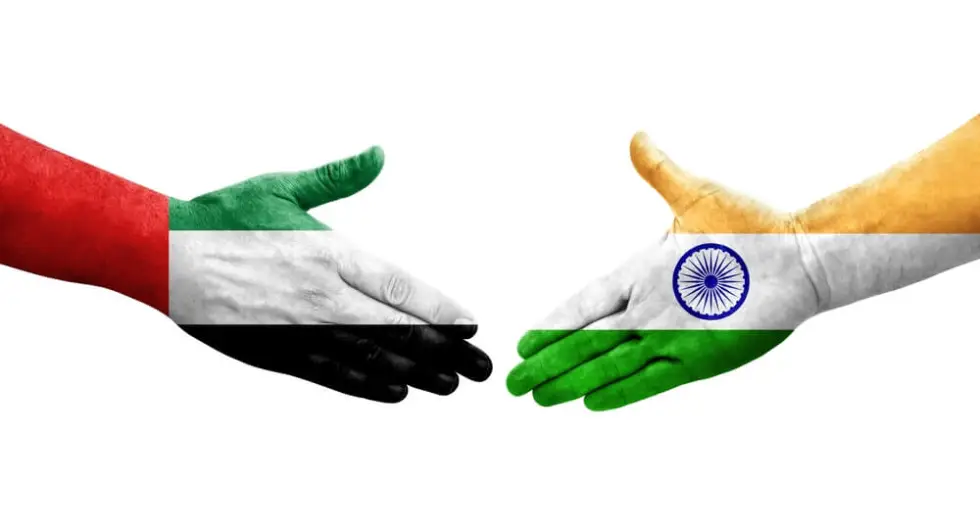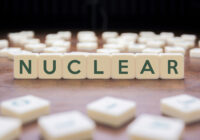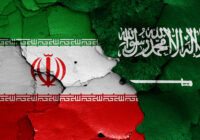The United Arab Emirates (UAE) is classified as a small state in the realm of international diplomacy. Thanks to its diplomatic agility, however, the country possesses a capacity that transcends this status. This demands a closer examination of the UAE, which has strategically positioned “minilateralism” — wherein small groups of nations collaborate to solve problems or pursue common goals — at the core of its diplomacy. This is in contrast to multilateralism, which adheres to the same general idea but on a grander scale.
Three distinct structures that are emblematic of the UAE’s approach: the I2U2 Group (India, Israel, the UAE and the US), the Negev Forum (Bahrain, Egypt, Israel, Morocco, the UAE and the US) and trilateral cooperation initiative between the UAE, India and France. These platforms are not just for discussions; they are carefully designed to enhance the UAE’s diplomatic and economic influence. Through these efforts, the country demonstrates its belief that minilateralism can effectively achieve diplomatic and strategic goals.
What is minilateralism?
Traditional multilateralism strives to achieve unanimous agreement among a wide array of countries, a process that often moves slowly. It aims to promote global unity through comprehensive agreements involving a wide range of stakeholders. It emphasizes broad inclusivity and consensus.
Minilateralism, on the other hand, is characterized by its deftness and efficiency. It takes a more streamlined approach by bringing together a select group of countries with shared interests to address specific challenges. This method allows for quicker, more targeted and adaptable responses to global issues. It also promotes deeper cooperation among countries with aligned strategic goals.
This speed is vital in today’s multipolarity world, where global power is spread across various centers of influence. In such a landscape, the ability to form effective partnerships within a smaller, more manageable group is essential for success. Nations that collaborate through minilateralism can better navigate the complex interplay of international relations and collectively exert more influence on global affairs.
Strategic implications and global leadership
The UAE’s involvement in minilateral initiatives aligns with its broader geopolitical goals. The country enhances its influence and shapes international discussion by holding strategic dialogues, trade agreements and collaborations on issues like climate change and health crises. These efforts highlight the UAE’s capacity for leadership and innovation in global diplomacy. The country’s foreign policy must contend with volatile issues of renewable energy and artificial intelligence; it must be able to make quick decisions and cannot allow a vast group of actors to slow it down.
Despite its benefits, concerns persist that minilateralism might overlook important perspectives and lead to a fragmented global governance structure. Nonetheless, the UAE’s adept handling of these criticisms reflects its commitment to a balanced, inclusive approach to international relations. By combining minilateral and multilateral strategies, the country demonstrates its versatility and innovation on the world stage.
Minilateral ventures
The I2U2 Group and the Negev Forum showcase the UAE’s strategic vision and commitment to practical collaboration. These platforms enable the country to work with major global and regional powers, utilizing each country’s strengths and resources. Such collaborations play a crucial role in improving regional security, fostering economic growth and addressing common challenges with creative approaches.
Additionally, the trilateral cooperation between the UAE, India and France underscores the UAE’s ambition to be a key player in both regional and international affairs. This initiative, which focuses on areas such as maritime security, climate change and renewable energy, highlights the country’s strategic positioning. It also showcases its capacity to form alliances with major powers from different continents.
These engagements diversify the UAE’s foreign policy tools and show its adaptability and forward-thinking approach. This strategy leads to more efficient and impactful outcomes, elevating the UAE’s reputation as a proactive, innovative and cooperative state.
The UAE’s minilateral initiatives indicate its strategic balancing in international relations, engaging with diverse states to navigate global uncertainties. This approach highlights the country’s ambition to influence the geopolitical landscape through dynamic minilateralism.
The country’s shift towards minilateralism represents a significant evolution in diplomacy, emphasizing strategic flexibility and pragmatic cooperation. The UAE is a trailblazer. It has set a precedent for navigating contemporary international relations and shaped a new diplomatic paradigm for the 21st century.
[Lee Thompson-Kolar edited this piece.]
The views expressed in this article are the author’s own and do not necessarily reflect Fair Observer’s editorial policy.
Support Fair Observer
We rely on your support for our independence, diversity and quality.
For more than 10 years, Fair Observer has been free, fair and independent. No billionaire owns us, no advertisers control us. We are a reader-supported nonprofit. Unlike many other publications, we keep our content free for readers regardless of where they live or whether they can afford to pay. We have no paywalls and no ads.
In the post-truth era of fake news, echo chambers and filter bubbles, we publish a plurality of perspectives from around the world. Anyone can publish with us, but everyone goes through a rigorous editorial process. So, you get fact-checked, well-reasoned content instead of noise.
We publish 2,500+ voices from 90+ countries. We also conduct education and training programs
on subjects ranging from digital media and journalism to writing and critical thinking. This
doesn’t come cheap. Servers, editors, trainers and web developers cost
money.
Please consider supporting us on a regular basis as a recurring donor or a
sustaining member.
Will you support FO’s journalism?
We rely on your support for our independence, diversity and quality.











Comment